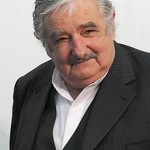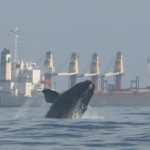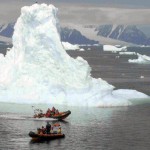We need big-picture thinking to protect nature.
by David Suzuki
Few places on Earth have been untouched by humans, according to a study in the journal Science. Satellite images taken from hundreds of kilometres above the planet reveal a world that we have irrevocably changed within a remarkably short time.
Although industrial projects like the proposed Enbridge Northern Gateway pipeline or the recently defeated mega-quarry in Ontario typically grab the headlines and bring out public opposition, it’s often the combined impacts of a range of human activities on the same land base that threaten to drive nature beyond critical tipping points. Once those are passed, rapid ecological changes such as species extinction can occur.
 David T Suzuki, PhD, Chair of the David Suzuki Foundation, is an award-winning scientist, environmentalist and broadcaster.
David has received consistently high acclaim for his 30 years of award-winning work in broadcasting, explaining the complexities of science in a compelling, easily understood way. He is well known to millions as the host of the Canadian Broadcasting Corporation's popular science television series, The Nature of Things. An internationally respected geneticist, David was a full Professor at the University of British Columbia in Vancouver from 1969 until his retirement in 2001. He is professor emeritus with UBC's Sustainable Development Research Institute. From 1969 to 1972 he was the recipient of the prestigious EWR Steacie Memorial Fellowship Award for the "Outstanding Canadian
Research Scientist Under the Age of 35".
For more insights from David Suzuki, please read Everything Under the Sun (Greystone Books/David Suzuki Foundation), by David Suzuki and Ian Hanington, now available in bookstores and online.
This article is reprinted with permission.
David T Suzuki, PhD, Chair of the David Suzuki Foundation, is an award-winning scientist, environmentalist and broadcaster.
David has received consistently high acclaim for his 30 years of award-winning work in broadcasting, explaining the complexities of science in a compelling, easily understood way. He is well known to millions as the host of the Canadian Broadcasting Corporation's popular science television series, The Nature of Things. An internationally respected geneticist, David was a full Professor at the University of British Columbia in Vancouver from 1969 until his retirement in 2001. He is professor emeritus with UBC's Sustainable Development Research Institute. From 1969 to 1972 he was the recipient of the prestigious EWR Steacie Memorial Fellowship Award for the "Outstanding Canadian
Research Scientist Under the Age of 35".
For more insights from David Suzuki, please read Everything Under the Sun (Greystone Books/David Suzuki Foundation), by David Suzuki and Ian Hanington, now available in bookstores and online.
This article is reprinted with permission.






